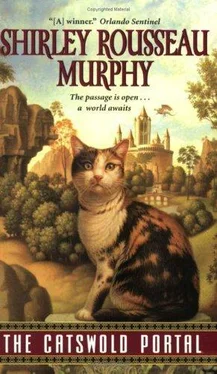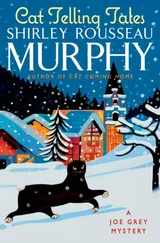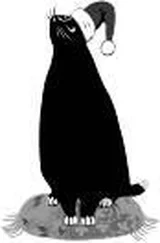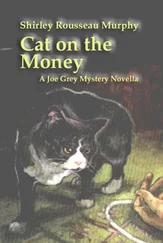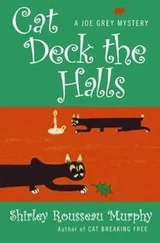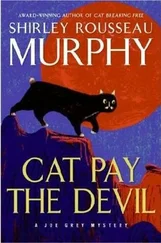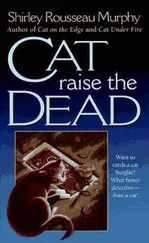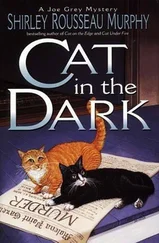Shirley Murphy - The Catswold Portal
Здесь есть возможность читать онлайн «Shirley Murphy - The Catswold Portal» весь текст электронной книги совершенно бесплатно (целиком полную версию без сокращений). В некоторых случаях можно слушать аудио, скачать через торрент в формате fb2 и присутствует краткое содержание. Год выпуска: 2005, ISBN: 2005, Издательство: HarperCollins, Жанр: Старинная литература, на английском языке. Описание произведения, (предисловие) а так же отзывы посетителей доступны на портале библиотеки ЛибКат.
- Название:The Catswold Portal
- Автор:
- Издательство:HarperCollins
- Жанр:
- Год:2005
- ISBN:9780060765408
- Рейтинг книги:4 / 5. Голосов: 1
-
Избранное:Добавить в избранное
- Отзывы:
-
Ваша оценка:
- 80
- 1
- 2
- 3
- 4
- 5
The Catswold Portal: краткое содержание, описание и аннотация
Предлагаем к чтению аннотацию, описание, краткое содержание или предисловие (зависит от того, что написал сам автор книги «The Catswold Portal»). Если вы не нашли необходимую информацию о книге — напишите в комментариях, мы постараемся отыскать её.
The Catswold Portal — читать онлайн бесплатно полную книгу (весь текст) целиком
Ниже представлен текст книги, разбитый по страницам. Система сохранения места последней прочитанной страницы, позволяет с удобством читать онлайн бесплатно книгу «The Catswold Portal», без необходимости каждый раз заново искать на чём Вы остановились. Поставьте закладку, и сможете в любой момент перейти на страницу, на которой закончили чтение.
Интервал:
Закладка:
Soon she was in the labyrinth of the ancient, dry riverbed. She and Mag had sometimes come this way. The pot-holes and basins and thin arches were rimed with ice, and she laid a spell before her feet to keep from slipping. The Affandar River had flowed here until Queen Siddonie’s powers changed its course so it brought water nearer the palace. That change had destroyed the economy of half a dozen villages which depended on the river’s power for fulling cloth and for milling grain, but the queen cared nothing about that.
All night she followed the riverbed. As dawn began to seep down from the frozen arches above her, she scraped ice from a saucer of stone and curled up in its hollow, wrapping her cloak around her, and slept.
She woke at mid-morning filled with a fleeting dream, she could remember vast spaces reeling above her as if the stone sky had vanished, endless space filled with harsh white light. She lay puzzled, trying to understand what she had seen.
She rose finally and found a spring among the sculptured stone. Breaking the ice, she drank and washed. From the small pool her image shone back at her surprisingly clear. She looked away from it guiltily, but soon Mag’s cautions faded and her curiosity overcame her fear of images. She looked at herself and laughed, forgetting caution.
All images were forbidden in Affandar and in most of the Netherworld. Everyone knew that an evil soul would cast destructive images and bring disaster.
But all souls were not evil. She didn’t think she was evil; she didn’t understand why all images should be avoided. And no one ever talked about what she had found in Mag’s spell book, that images made with love were beneficial and that such images could heal. In Affandar there was no distinction between good images and evil; all images were forbidden by order of the queen.
There would be no mirrors in Affandar Palace. Or none that she would see. She had heard that the queen kept one small mirror for dressing, locked within her wardrobe where no eyes but her own would see it, and no spell could be cast upon her.
For a long time she knelt beside the spring looking down at her own reflection. Mag would have been furious, but Mag wasn’t there. She liked her green eyes and dark lashes, and she felt happy to like what she saw.
Toward noon she came up out of the labyrinth onto rolling green pastures. The sky dropped close above her, radiating warmth. She could see ahead the village of Sesut. There was a rebel camp there. She had gone there with Mag, and she had learned to swim in the icy Sesut River with the daughters of a rebel leader. Now, she stayed behind a ridge, regretting the warm welcome she would miss and the good hot meal.
Soon she turned onto an animal trail through a woods, then followed a spring until it ended in a thin fall of water dropping into a ravine. Beyond the ravine she entered country she hadn’t seen and knew only from hearing the rebels describe it. She knew she was passing caches of weapons and food hidden in scattered caves. Ahead the land was unstable, and she stepped lightly among shattered stone thinking of boulders imploding, of faulted, cracked caverns collapsing in landslide. Families, whole villages had died, buried in such implosions.
She came out of the faulted land at dusk to a place of firestones. As she knelt to pick up the darkest, oiliest rocks with which to cook her supper, pebbles fell from above her and a small blue dragon slid out of a cleft. It was the size of a pony, too small to be dangerous, but it snapped its forked tongue at her. She was startled by her sudden desire to kill it, an inexplicable need to leap on it and tear at it. A desire so intense she caught herself moving stealthily, stalking it. Only when she was very close did she freeze and draw back, alarmed, not knowing what was wrong with her.
She had killed game, had hunted doves for Mag when meat was scarce, bringing them down with a simple spell. Even that killing had upset her unbearably. She had never liked cleaning the birds; they hung too limply in her hands. She didn’t want to admit that she had been unpleasantly stirred by the dead birds, that they awoke a horrifying desire to eat raw meat. She was deeply ashamed of such bizarre feelings.
And now, this night, sleeping beside her fire in a cleft of stone, she dreamed of killing dragons and of shaking and teasing dragons, and she woke sick with shock at herself.
Around her the first green of dawn was seeping from the stone sky and cliffs. She drank some water, and set out walking fast, trying to escape her dream. She didn’t feel like eating. When at mid-morning two winged lizards soared over her, she started guiltily for no reason. The lizards’ thin shadows slid along the roof of sky, but their ruby eyes looked down directly into her eyes. Well, so she was journeying to Affandar Palace. If they told the queen that, what difference?
Toward evening she crossed pastureland again, approaching a herder’s cottage. She could see by the bales of reddish wool in the shed that he kept long-coated russet sheep. She thought he was likely on the high ridges where the russets preferred to graze. Entering the cottage, she found cold mutton packed in peat and ice, and some bread and onions and dried peaches. She took a small amount of food as was the custom, leaving an opal from among the dangles on her bracelet. Some said it wasn’t right to trade for food since the queen gave the common folk much of the food they needed. Mag said pay for what you get. Mag wanted nothing from the queen.
Queen Siddonie had gained her throne by marrying Affandar’s child prince when he was twelve. She had come originally from Xendenton. She had been a little girl when Xendenton fell and her father and two brothers were killed. She and the one remaining brother had escaped the battle and were not seen again in the Netherworld for many years. When they returned, they quickly rallied an army to win back their kingdom. Siddonie herself killed its ruler, and she put her brother Ithilel on the throne.
Soon after, Siddonie married the boy king of Affandar. Once she was queen of Affandar, she set out to conquer other nations. At present she controlled five of the fourteen Netherworld nations, plus Xendenton and Affandar. She had taken the thrones not with war but with lies, with spells, with intrigue. It was said that Siddonie enjoyed toppling rule from within by forming alliances that turned against the true rulers.
Mag said that few Netherworlders would fight hard enough to preserve their own freedom; she said folk had grown too weak. She said the spirit of the Netherworld was dying. Surely the powers of protective magic had weakened. Spells failed, sometimes crops wouldn’t grow. Too many babies were born dead, and many children sickened and died. Even the queen’s own child was so ill no one expected him to live long. The rebels hoped Prince Wylles would die. Without an heir, Siddonie’s rule would be weakened and she would more easily be dethroned.
Melissa came to the main road in late afternoon and crossed the Affandar River on a narrow bridge. Below her the wide water ran green and clear. She was startled to see, halfway across, three selkies swimming upriver, their dark horse heads poking up out of the fast water. She watched them with surprised pleasure, for seldom did the stocky, broad little horses show themselves. They turned in the water to look up at her with wide, dark eyes, friendly and shy. Then they swam to shore and came out of the river, galloping up the bank. And on the bank they shape shifted suddenly into stocky men—broad faced, dark eyed, their beards streaming water. She felt graced to witness such a sight.
The selkies were one of the few shape-shifting peoples left in the Netherworld. They were secretive; they clung to their own kind, their ways untouched by human concerns. When trouble boiled through the Netherworld, they disappeared into the rivers and buried seas, returning when peace was restored. She had no idea why these three would show themselves to her. They said no word, only looked at her, then the three stocky men dove back into the river and disappeared. Soon, far downriver she saw the three horses’ heads pop up and move swiftly away.
Читать дальшеИнтервал:
Закладка:
Похожие книги на «The Catswold Portal»
Представляем Вашему вниманию похожие книги на «The Catswold Portal» списком для выбора. Мы отобрали схожую по названию и смыслу литературу в надежде предоставить читателям больше вариантов отыскать новые, интересные, ещё непрочитанные произведения.
Обсуждение, отзывы о книге «The Catswold Portal» и просто собственные мнения читателей. Оставьте ваши комментарии, напишите, что Вы думаете о произведении, его смысле или главных героях. Укажите что конкретно понравилось, а что нет, и почему Вы так считаете.
